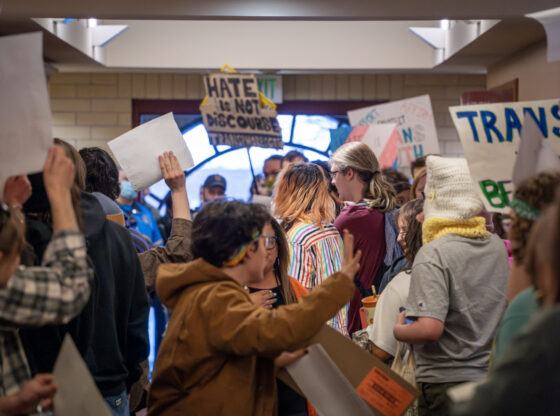How far do human rights violations need to go for nations such as the U.S. to speak out? The U.K., U.S., Australia and Canada have all declared a diplomatic boycott in order to protest “the PRC’s egregious human rights abuses and atrocities in Xinjiang. Muslim ethnic minorities in Xinjiang face systematic state-organized mass imprisonment, torture and persecution amounting to crimes against humanity.” The decision to declare a diplomatic boycott in an attempt to demonstrate an unwavering commitment to human rights is ethically a vital decision.
However, declaring a diplomatic boycott for the Olympic games is not enough. These countries are taking a stand in the realm of entertainment. How much does this prove their loyalty to fighting against human right violations?
A diplomatic boycott means countries will not send delegates to the games. Those who attend the games tend to be high-ranking politicians or members of a royal family. Historically the Olympics have given leaders the opportunity to meet. With the implementation of a diplomatic boycott, countries will only send their athletes.
A statement from the Canadian Olympic and Paralympic Committees stated the athletes, “remain concerned about the issues in China but understand the Games will create an important platform to draw attention to them.” This boycott is necessary but its insignificance compared to the bigger picture of corruption, should be further acknowledged. Human rights in China have been historically violated causing an extremely corrupt society.
Human rights activists and journalists within China have been silenced and because of callous internet restrictions, China has been able to censor their people and their corrupt reputation to the rest of the world.
How much does a diplomatic boycott actually affect the nature of human rights violations in a historically corrupt nation? The support for this boycott in these countries show that there is external support to instill basic human rights in China. But a diplomatic boycott is barely a start. After this small step in moving towards pressuring China to implement basic human rights and uncensor their people, countries need to come together to take further action than simply limiting diplomats from sports entertainment.
If one looks back at the history of diplomatic boycotts, the dismissal of the real problem stays consistent. One of the most prominent boycotts occurred in 1980. The United States led a boycott of more than 60 countries at the summer games in Moscow. This was due to the Soviet Union’s invasion of Afghanistan. In 2014, President Barack Obama, First Lady Michelle Obamas and Vice President Biden skipped the Sochi Olympics in Russia in order to stand up against “Russia’s crackdown on gay rights.” This action was important and should be considered necessary. Currently, in Russia, there are no bans on conversion therapy or housing discrimination. So what did the absence of the Obamas and Biden really help to do if these basic human rights continue to be violated?
China has responded to these boycotts by threatening free speech.
“Any expression that is in line with the Olympic spirit I’m sure will be protected. Any behavior or speech that is against the Olympic spirit, especially against the Chinese laws and regulations, are also subject to certain punishment,” said Yang Shu, the Beijing Organizing Committees’ deputy director general of international relations.
This statement presents the issue in itself and should encourage more countries to boycott.
Nonetheless, amidst these boycotts the most important acknowledgment of these countries is the fact that this is a minuscule step in solving the overall problem. According to transparency international, the key aspects in outside nations encouraging China to alleviate this corruption revolves around increasing public funding, removing media censorship, granting access to government information and increasing funding for NGOs as they “can play important roles as initiators and implementers of social reforms, including anti-corruption reforms.”











